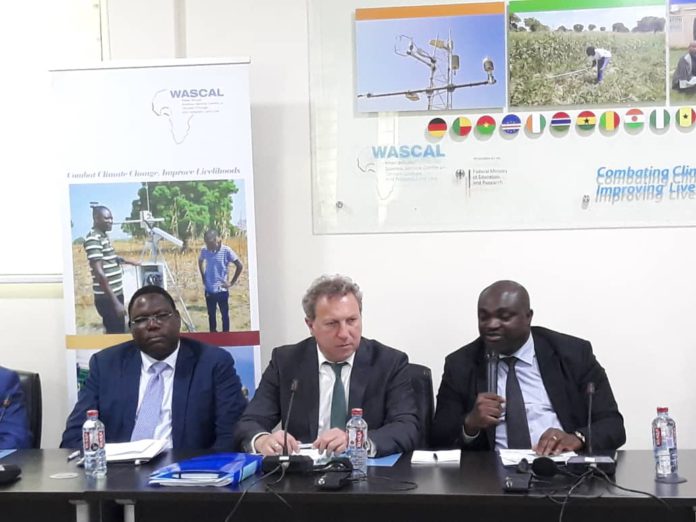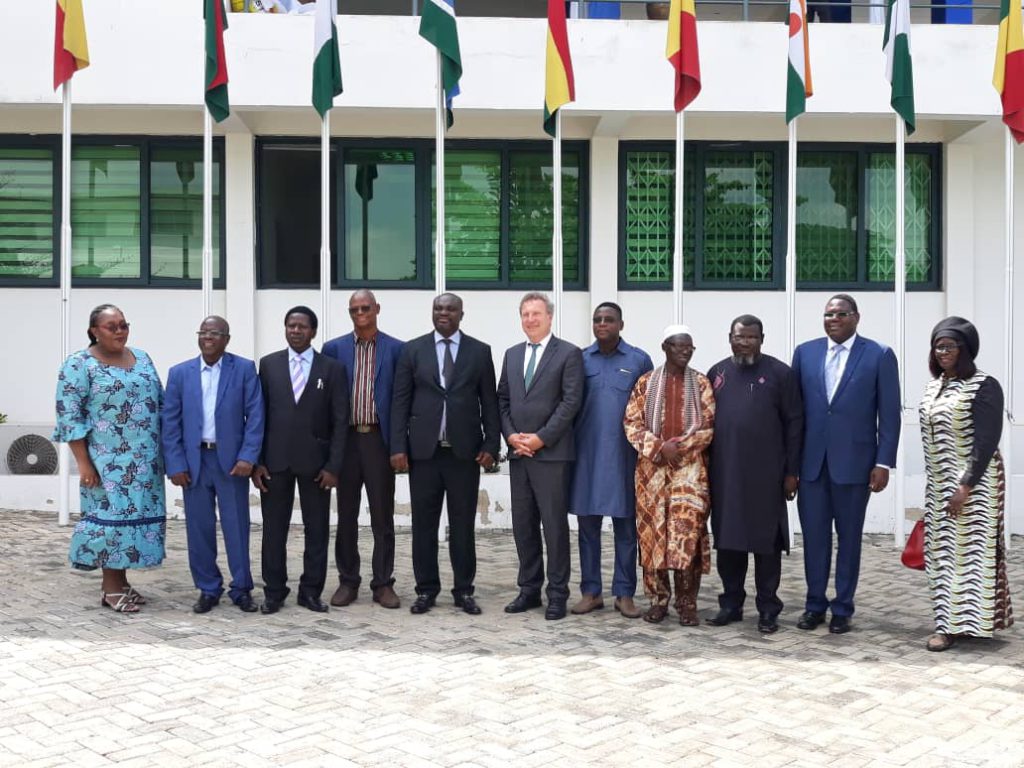
The West African Science Service Centre on Climate Change and Adapted Land Use (WASCAL) has engaged the Ghanaian media on climate change and its impact on human existence.
According to the Head of Division Global Change, Climate and Biodiversity at the Federal Ministry of Education and Research, Germany, Professor Dr. René Haak the press engagement was aimed at educating the media about the impact on climate change and measures putting in place by stakeholders to tackle the phenomenon.
Prof. Dr. Haak said the establishment of the West African Science Service Centre on Climate Change and Adapted Land Use (WASCAL), is the contribution of the Federal Republic of Germany to the fight against Climate change and Land Degradation.
He expressed the adverse impact of climate change globally and the role of the German government in tackling it.
Prof. Dr. Haak stated that the German Federal Ministry is firmly committed to support the efforts of the African partners in the fight against the impact of climate change as part of the German responsibilities generated from the agreement of Paris and its contribution to the Sustainable Development Goals (SDGs).
He said the German Federal Ministry will release 10 million Euros for the new 2.0 and make available further 11 million Euros for the 4th batch of the Graduate School Program and additional 4.5 million Euros for Post-Doctoral Program for excellent young Africa scientists run by the German Academic Exchange Service DAAD.
Professor Haak said this when he addressed a cross-section of Ghanaian media in the maiden edition of the WASCAL Media Engagement held at its headquarters in Accra.
Touching on the importance of WASCAL, Prof. Haak said “WASCAL was founded to be a Leading Regional Science Centre in integrated climate change and adaptive land management, climate services and Capacity Building by generating and implementing scientific knowledge. The partners in WASCAL work together in Regional -Interdisciplinary Research Projects on priority thematic areas.”
He emphasized that the current processes of global change, including demographic change, climate change and the globalization of economic systems, are an enormous challenge for societies worldwide.
Meanwhile, the Executive Director of WASCAL, Dr Moumini Savadogo said, the centre had been pursuing the implementation of cutting edge research on various aspects of climate change research since its establishment eight years ago.
He also revealed that WASCAL had made some modest achievements which included the improvement in the quality and quantity of critical data required for climate change research.
Dr Savadogo said in terms of capacity building, WASCAL doctoral and master programmes had been implemented in 10 lead universities across nine West African countries, and would soon be increased to 12 in 11 countries, with 10 topics related to climate change.
In addition, WASCAL has purchased and installed automatic weather stations across all its 10 member-countries in collaboration with the national meteorological agencies, with the aim of closing the climate change data gaps in the sub-region, while strengthening these agencies, he said.
Other speakers at the programme include; the Governing Board Chair of WASCAL, Mr. Peter Dery, who answered questions on Ghana’s commitment toward the sustainable Development Goal 13 on climate action and the successful stories of WASCAL.
He praised the government of Ghana for its policies such as the ‘One village, One Dam’ programme in the Northern as part of the country’s effort to boost farming activities in the area, especially during the dry season and also address issues of climate change in the country.
WASCAL was founded to be a Leading Regional Science Centre in integrated climate change and adaptive land management, climate services and Capacity Building by generating and implementing scientific knowledge.

WASCAL is a joint initiative of Benin, Burkina Faso, Côte d’Ivoire, the Gambia, Ghana, Mali, Niger, Nigeria, Senegal, Togo and Germany in response to the challenges of global change. Guinea Conakry and Cabo Verde signed their adhesion with WASCAL. Guinea Bissau, Liberia, and Sierra Leone are on the verge to accede.
The partners in WASCAL work together in Regional -Interdisciplinary Research Projects on priority thematic areas.
Funded by the German Federal Ministry of Education and Research (BMBF), the centre provides research institutions, universities, NGOs, government agencies and enterprises from across West Africa with an opportunity to display and present their works in the field of climate change and environmental issues.
Source: Ghana | Adomonline.com | Abednego Asante Asiedu | Adom News

